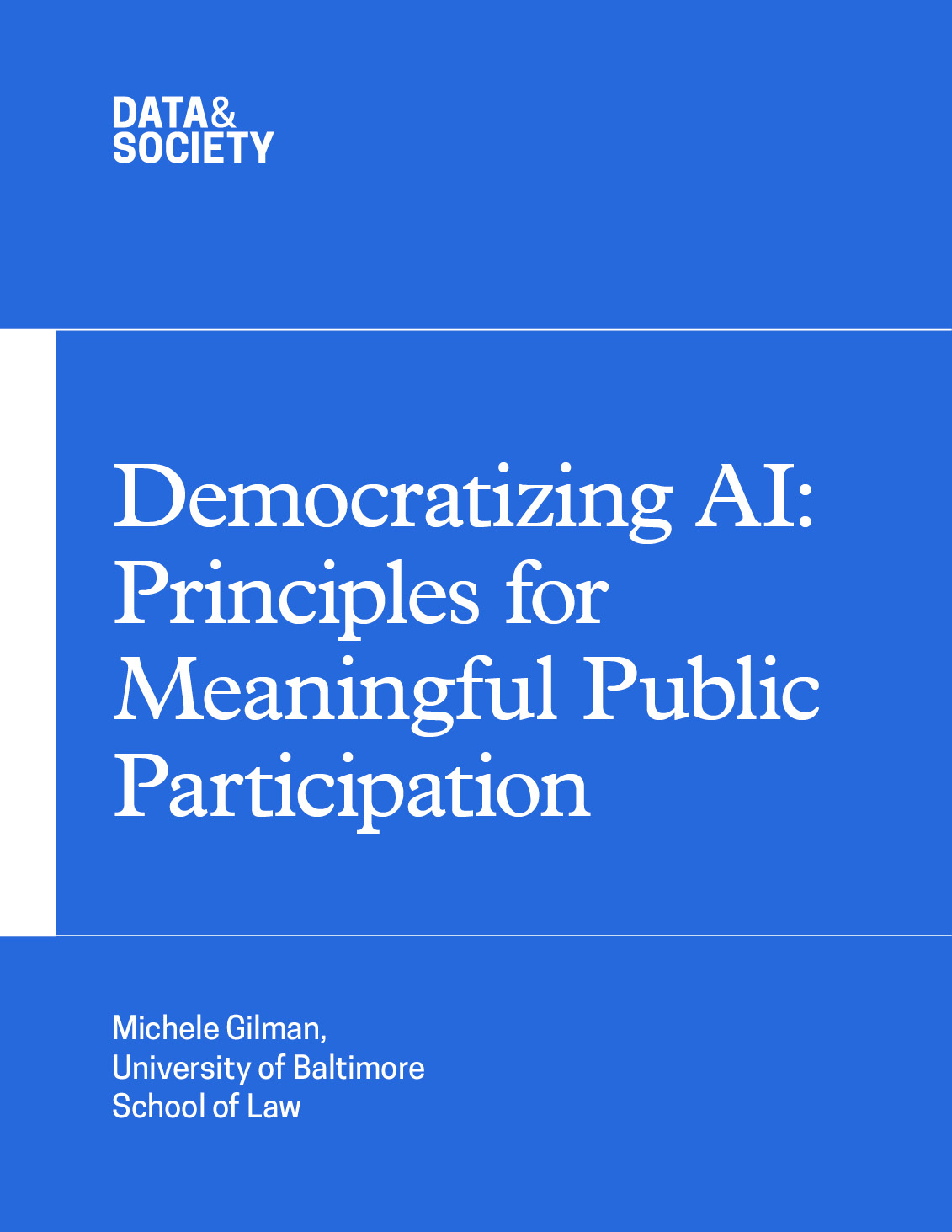As AI is deployed in ways that dramatically shape people’s lives and opportunities, the public has little input into its use. In light of this, there are increasing calls to integrate democratic and human-centered values into AI through public participation.
Public participation enables the people who are most likely to be affected by a given system to have influence into that system’s design and deployment, including decision-making power. Evidence from multiple fields indicates that, when done right, public participation helps to avert harmful impacts of new projects. Input from the public can result in concrete improvements to a program, or in the rejection of proposals that community members did not support. It brings a range of social and cultural values into decision-making above and beyond narrow technical parameters. Public participation adds legitimacy to decisions because people trust processes they understand and influence. It improves accountability by adding layers of scrutiny and discussion between the public and decision-makers.
Yet public participation is difficult to do well, and its mechanisms can backfire if they are not carefully designed. Fortunately, policymakers do not need to design public participation for AI from scratch. Building on a comprehensive review of evidence from public participation efforts in policy domains such as anti-poverty programs and environmental policy, in Democratizing AI: Principles for Meaningful Public Participation Michele Gilman summarizes evidence-based recommendations for better structuring public participation processes for AI, and underscores the urgency of enacting them.


